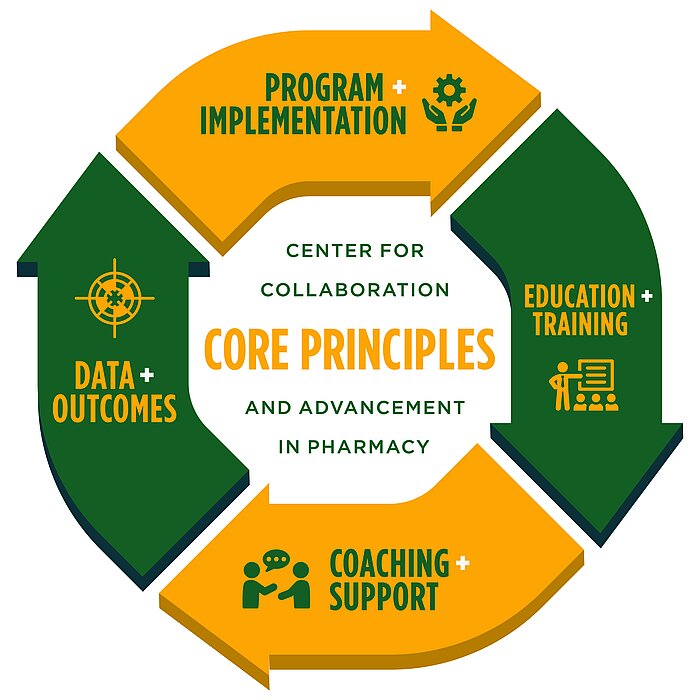
CAP Center Four Core Principles
The CAP Center is built on four core principles necessary for the design and implementation of interventions that have optimal impact and are sustainable. This requires a process of designing, implementing, monitoring and evaluating the project with those goals in mind. In order assist researchers with achieving these goals, the CAP Center has designed four core principles as shown in the model below. Each of these core principles are explained in detail in accompanying documents.
 Core Principle 1: Education and Training – for healthcare professionals to implement an intervention, education and training should increase the participants’ confidence that they can implement the intervention and understand why it is important.
Core Principle 1: Education and Training – for healthcare professionals to implement an intervention, education and training should increase the participants’ confidence that they can implement the intervention and understand why it is important.  Core Principle 2: Programs & Implementation - Programs should be thoughtfully designed to be implemented within existing workflows with minimal burden. Tools and supporting materials for participants should be available in print and online format for ease of use.
Core Principle 2: Programs & Implementation - Programs should be thoughtfully designed to be implemented within existing workflows with minimal burden. Tools and supporting materials for participants should be available in print and online format for ease of use.  Core Principle 3: Coaching & Support - The CAP Center encourages that each program includes expert coaching and support to assist participants with program implementation and sustainability. This is especially critical during the initiation phase of the program, which can make the difference between success and failure. This can be done through on-site detailing, coaching calls, webinars, and newsletters. Often what is needed is the accountability and encouragement to persevere.
Core Principle 3: Coaching & Support - The CAP Center encourages that each program includes expert coaching and support to assist participants with program implementation and sustainability. This is especially critical during the initiation phase of the program, which can make the difference between success and failure. This can be done through on-site detailing, coaching calls, webinars, and newsletters. Often what is needed is the accountability and encouragement to persevere.  Core Principle 4: Data & Outcomes - It is imperative that your intervention’s impact is measured with meaningful, practice-based data collection to demonstrate the value of the intervention.
Core Principle 4: Data & Outcomes - It is imperative that your intervention’s impact is measured with meaningful, practice-based data collection to demonstrate the value of the intervention.


